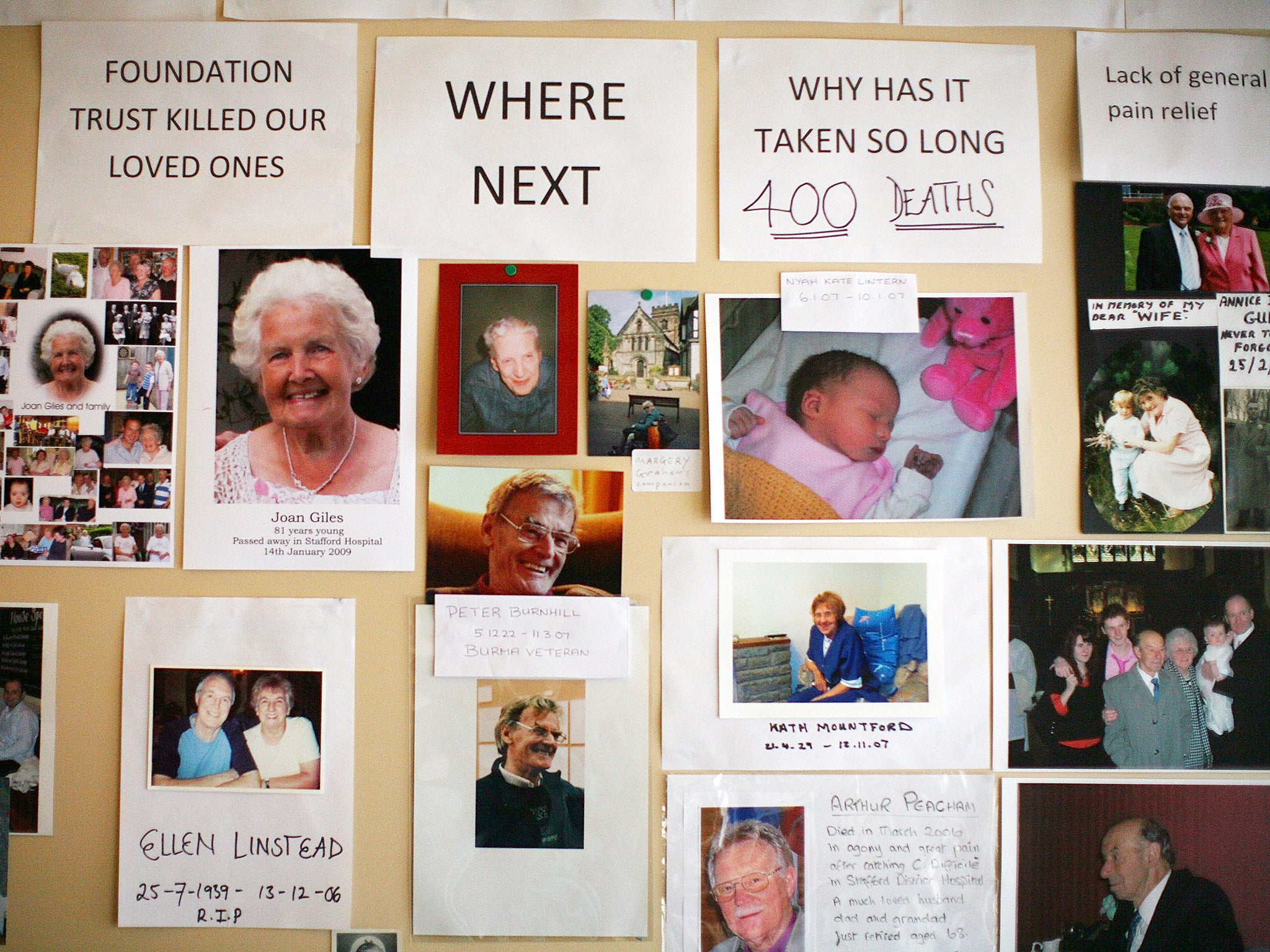Stafford Hospital, NHS managers, and why money rather than reform sometimes really is the answer
A confused, simplistic and narrow debate about the true meaning of NHS reform has been exposed by the appalling neglect of patients in this exceptional case


The shocking neglect of patients at Stafford Hospital confirms what we already know. Some hospitals are poorly managed, some nurses should not be let near a ward, and parts of the NHS can become immersed in bureaucratic procedures as an alternative to patient care. Like other publicly funded institutions subjected recently to more forensic scrutiny, the NHS requires reform. But the question is what form the changes should take.
For far too long the debate in England has been comically simplistic. Tony Blair framed the argument during his second term in power as “reform versus anti-reform”, as if there were only one available change to the NHS – the one that he happened to advocate. David Cameron copied precisely the same language in justifying his current upheaval.
Shallow simplicity
The confused, shallow simplicity of this narrow debate is reflected in the complexities of the scandal. In 2008, as a result of Blairite reforms, the hospital acquired foundation trust status, making it semi-independent of control from the Department of Health. This act of partial autonomy became part of the problem.
To whom were the complacent managers and neglectful nursing staff accountable? In theory, they were accountable to the patients locally rather than a distant government department. But the idea that staff were accountable to the geriatrics in their care now seems tragically laughable. The fact that bereaved relatives had to fight so hard to expose what had gone on also shows the limits of empowerment as currently defined.
This has always been the problem with what has so far been the only acceptable version of “reform” in England. Lines of accountability are too vague, in what is still a nationally funded service. Nowhere was the confusion more clearly highlighted than in Cameron’s decision to make the statement in the Commons on what had happened within the Mid Staffordshire Trust.
Without doubt, Cameron made the right call, but in doing so he challenged directly his own initial plans for public services, and the spirit of his original NHS reforms. In opposition, the key advisers to Cameron told me quite explicitly that when there was a crisis in a single hospital they would not and should not feel responsible – that this form of centralised accountability was part of the problem. Fast-forward to yesterday, and – inevitably in the face of this appalling scandal – Cameron felt the need to respond.
In a nationally funded NHS, where the Treasury provides the cash, of course a Prime Minister, Chancellor and Health Secretary are ultimately accountable. Yet Andrew Lansley’s original reforms explicitly removed any reference to ministers being responsible, although this has partially changed in the small revisions that followed.
The increasingly confused lines of accountability will be tested immediately as the implications of yesterday’s report are worked through under the new Health and Social Care Act. In theory, the new non-elected NHS Commissioning Board will decide and implement changes. But as Cameron demonstrated by making the Common’s statement yesterday, he and his Health Secretary, Jeremy Hunt, will remain responsible even if they are no longer technically accountable for the running of the NHS.
Rightly, Cameron noted that part of the explanation for the Stafford disaster was that too many agencies assumed that other bodies were responsible. But Cameron’s own reforms introduce another layer of ambiguity as he steps back from theoretical responsibility, while being acutely aware that if there is another Stafford he will be the one answering the questions.
Information as power
Emerging from all this is the route towards a more considered set of reforms. Knowledge about what is happening in a hospital is a necessary form of empowerment. A minister has suggested to me that under the Government’s reforms, newly empowered GPs would not have sent their patients to Stafford Hospital, and this would have forced managers to raise standards. But GPs might not have known what was happening at Stafford – no one appeared to during the years of neglect. As the Chief Executive of the NHS Confederation, Mike Farrar, argued in his response to yesterday’s report, much more information should be made available about the varying performances of hospitals.
Targets are an important form of accountability and the current Government has almost kept the most worthwhile ones while simultaneously rubbishing the idea. Evidently, in the less agile, more sclerotic hospital management teams, targets became an excuse for not treating patients. This is not a reason for getting rid of all of the targets but for sorting out the poor management that saw them as an alternative to adequate patient care.
Resources matter, too. One of the other simplistic arguments of recent years has been, “There is less money, so we need reform”. Once more, the assertion implies there is only one “reform”. The need for funding is regarded too casually. The population is ageing and the NHS is ill-equipped to become the equivalent of social homes for the elderly. A national social care service for the elderly must be established and funded – as all three parties theoretically agree.
These changes are much harder to bring about than restating the apparently bold declaration, “I am in favour of reform and anyone who disagrees is anti-reform”. It was in the vacuum that was created by such banality that the neglectful made their mark.

Join our commenting forum
Join thought-provoking conversations, follow other Independent readers and see their replies